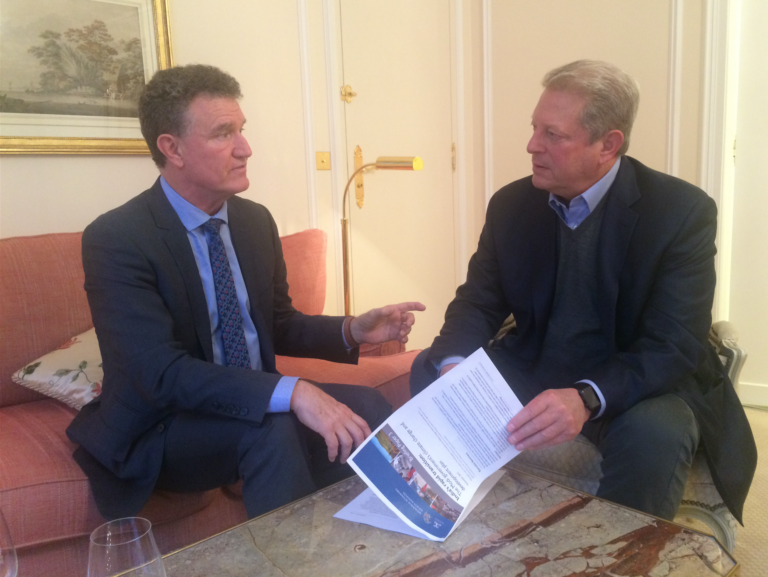UN Futures
I am currently researching the future of the United Nations.
The Responsibility to Protect
Academia focused
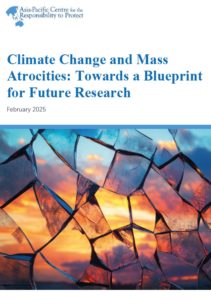
Climate Change and Mass Atrocities: Towards a Blueprint for Future Research (February 2025)
What is the relationship between climate change and mass atrocities? This report contends that researchers and practitioners are yet to accrue sufficient knowledge to make definitive statements about the relationship between the two. In this case, the report seeks to examine the context and scope, and identify the many key relationships therein, that require research so that definitive statements can be made, and effective policy responses pursued. To achieve this, the report uses insights found in the ‘climate-conflict’ literature, which examines the relationship between climate change and conflict, to populate the comparatively empty climate-atrocity research space. However, while significant overlap exists between climate change, conflict and atrocity research – for example, atrocity crimes are largely committed in the context of an armed struggle – climate-conflict research should not be fully conflated with climate-atrocity research. The report explains the similarities and differences in the research agendas, and in doing so, cautions climate-atrocity researchers and practitioners uncritically using the ‘threat multiplier’ thesis – the dominant understanding of the climate-conflict relationship – to understand the climate-atrocity relationship. Ultimately however, the report aims to provide some initial thinking to help catalyse a Blueprint for Future Research into climate change and mass atrocities. (Available here).
Table of Contents
INTRODUCTION
PART 1: THE ESSENTIAL CONTEXT
1. Locating the Climate Change–Mass Atrocity Nexus
2. Pathways Between Climate Change and Deadly Violence
- Climate–conflict pathways
- Climate–atrocity pathways
3. Research Primers
- Climate and mass atrocity escalation
- Climate and peacetime atrocities
PART 2: CONSIDERATIONS FOR FUTURE RESEARCH
4. Research Scope
- Geography
- Timeframes
- Drivers
- Policies
- Methodology
CONCLUSIONS
APPENDICES
Government focused
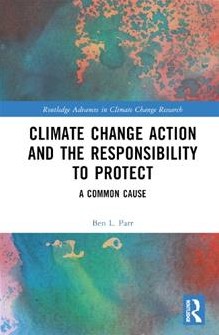
Review
Without diluting or diverting the core message of ‘R2P’ – designed specifically to energize the world’s response to genocide and other heinous mass atrocity crimes – Parr creatively applies its principles and methodology to meeting the existential challenge of climate change. A thoughtful, stimulating, practical, and very-readable exercise in the cross-fertilization of ideas.
Gareth Evans, Former Australian Foreign Minister; President Emeritus of the International Crisis Group; and author of ‘The Responsibility to Protect’ (ICISS; and Brookings)
Climate Change Action and the Responsibility to Protect: A Common Cause (London: Routledge, 2024)
This book brings together two important fields in the study of international politics and policy: climate change adaptation and mitigation (climate action) and the Responsibility to Protect (R2P). Both have attracted strong scholarly attention in each of their respective research silos, but there is yet to be a strong research push that explores the relationship between the two.
Filling this gap, Ben L. Parr argues that the climate action and the R2P agendas share a common goal: to protect vulnerable human populations from large-scale harm. To substantiate this argument, Parr reveals where the historical, conceptual, and operational parallels exist between the two agendas, and where and when researchers and practitioners from both camps might work together in practice to achieve their common goal in the challenging years ahead. Notably, the book builds on recent efforts by Western governments in the UK, US and EU to integrate climate action policies into conflict prevention and response policies. To achieve this, the volume situates a variety of climate action policies alongside the forty-six policy options found in the R2P operational framework (commonly known as the R2P toolbox) across its prevention, reaction, and rebuilding phases.
Climate Change Action and the Responsibility to Protect will be of significant interest to policy-orientated students and scholars, those working at the academic-policy interface in the NGO community, as well as those working in government and international organisations. (Available here. e-book available November 2023; hardcopy, January 2024)
Table of Contents
INTRODUCTION
PART I: CLIMATE CHANGE AND ATROCITIES – THE HISTORY
CHAPTER 1 A History of Climatic Change and Atrocities
- The Pre-Industrial Period
- The Industrial Revolution to the Second World War
- The Cold War to the New Millennium
- September 11 to the Covid-19 Pandemic
CHAPTER 2 Efforts to Curb Global Warming and Prevent Atrocities
- Post-Cold War to the World Trade Centre Attacks
- The War on Terror to the Arab Spring
- The Arab Spring to the post-Pandemic World
CHAPTER 3 Climate Change and R2P – Towards Integration
- Integrating Climate with Peace and Security – the Recent Background
- Climate-R2P – Conceptual Considerations
PART II: CLIMATE ACTION AND R2P’S OPERATIONAL FRAMEWORK
CHAPTER 4 Climate Action and The Responsibility to Prevent
- Early Warning Systems
- Political and Diplomatic Strategies
- Economic and Social Strategies
- Constitutional and Legal Strategies
- Security Sector Strategies
CHAPTER 5 Climate Action and The Responsibility to React
- Political and Diplomatic Strategies
- Economic Strategies
- Legal Strategies
- Security Strategies
- Military Strategies Short of Applying Coercive Force
- Military Intervention
CHAPTER 6 Climate Action and The Responsibility to Rebuild
- Achieving Security
- Achieving Good Governance
- Achieving Justice and Reconciliation
- Achieving Economic and Social Development
CONCLUSION
NGO focused
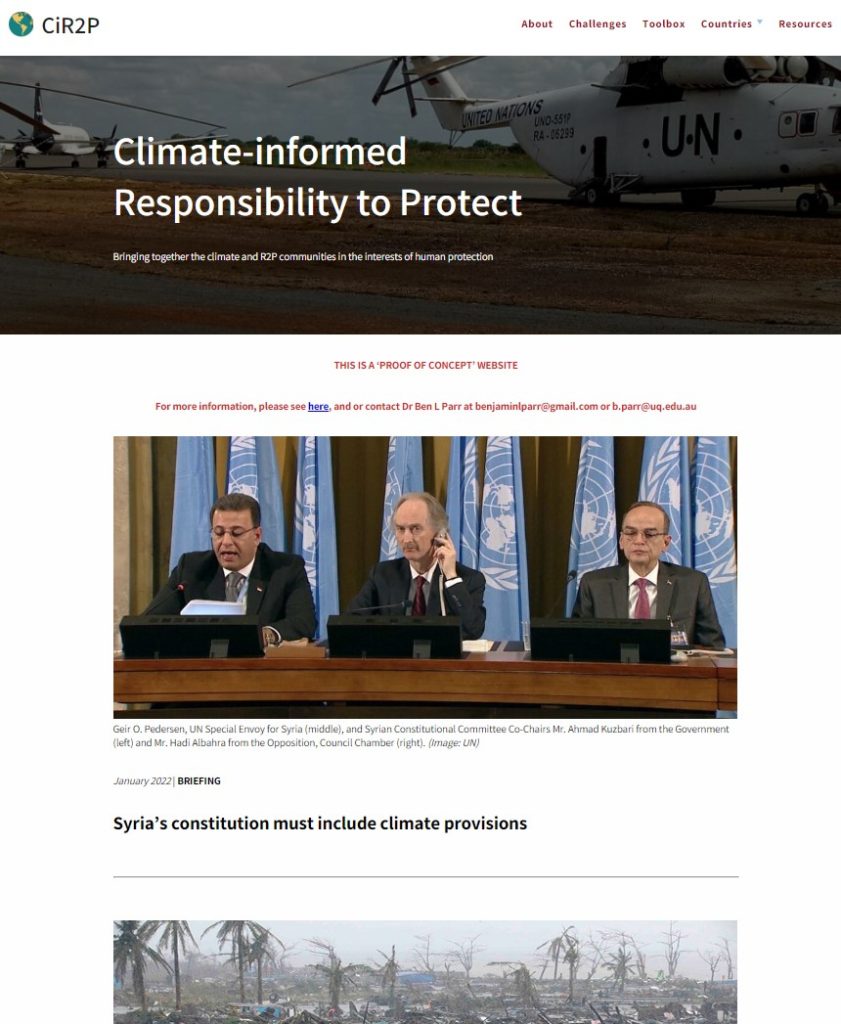
Towards a Global Centre for Climate Change and Atrocity Prevention, 2022
This project originated in mid-2021 while conducting research for my book (above). In my search for information, it became apparent that nowhere did there exist a dedicated climate change-atrocity prevention NGO. And indeed, absent too were any ongoing programs on this topic in established climate security or conflict-focused NGOs.
This PowerPoint presentation shows the ‘gap’ in the NGO universe.
Based on this finding, I built a ‘proof of concept’ website (cir2p.benlparr.com). The aim was for the website, and its functions, to provide an example structure and a few innovate ideas (such as the Live Policy Tracker) towards the establishment of a pilot Global Centre for Climate Change and Atrocity Prevention.
Practice
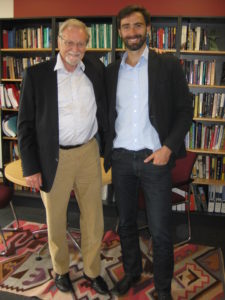
Between 2011 and 2012 , I was employed as Personal and Research Assistant to R2P co-creator, the Hon Gareth Evans AC KC. In March 2011 (two months after I had started as Assistant) a NATO-led multinational force intervened militarily in Libya to stop Muammar Gaddafi’s forces from carrying out a large-scale massacre of civilians fleeing Benghazi. The R2P principle was used as a justification for the intervention.
The Paris Agreement
China:
A New Starting Point: China’s Eco-civilisation and Climate Action Post-Paris, Briefing Paper, MSSI, University of Melbourne, June 2016.
‘China Moves towards Ecological Civilisation’, Australian Institute of International Affairs (Canberra), 24 August 2016.
‘Eco-civilization Could Help World Meet Paris Targets’, Chinadialogue (in English and Chinese), 9 August 2016.
‘Examining the Eight Countries Key to Achieving a 1.5C Paris Agreement: Political and Policy Directions’, The Second International Young Scholars Forum, School of Atmospheric Science, Sun Yat-sen University, China, 18-19 June 2016.
‘Co-panel Chair on Environmentalism and Health in China’, The Fifth Oxford Young Scholars Conference on Contemporary China: Continuity and Reform, University of Oxford, 24 June 2016.
‘What China’s Eco-civilisation Could Mean for Climate Change’, Special Roundtable Discussion on Governance in China after Mao (with Prof Rana Mitter), University of Oxford, 23 June 2016.
India:
India’s Rapid Transition: The Modi Government’s Climate Change and Development Plan, Briefing Paper, MSSI, University of Melbourne, November 2015.
‘Why India Needs to Join a Paris Climate Deal’, Newsweek (The US and Europe), 4 December 2015.
‘Comment: Climate Change and Modi’s ‘Modern’ India’, SBS News (Australia), 1 December 2015.
‘India Builds for Future with Climate Plan’, Pursuit (Melbourne), 26 November 2015.
‘India is Focused on Energy and Poverty, But it can Still Sign a Global Climate Deal’, The Conversation (in English and French), 25 November 2015.
‘India Update: Rapid Transition on Climate?’, Paris Climate Summit: University of Melbourne Blog, 23 November 2015.
‘India’s Likely Position at the Paris Climate Talks’, Paris and Beyond, Climate Change Policy Challenges and Priorities: Roundtable with the Hon Al Gore, University of Melbourne, 27 July 2015.
Canada:
Opportunities and Challenges for Canada to Exceed its Paris Agreement Target, Briefing Paper, MSSI, University of Melbourne, August 2017.
‘Canada Should Tackle a Tougher Climate Target’, The Hill Times (Ottawa), 20 September 2017.
Brazil:
Opportunities for a Low Pollution Economic Recovery in Brazil, Briefing Paper, MSSI, University of Melbourne, May 2017.
‘Opportunities for Collaboration in the Land Sector between Brazil and Indonesia’, Implementing the Paris Agreement – Issues and Opportunities for Australia: Roundtable with Australia’s Ambassador for the Environment Patrick Suckling, University of Melbourne, 30 August 2016.
Philippines:
Philippines Climate Change Agenda: High Vulnerability! High Ambition?, Briefing Paper, MSSI, University of Melbourne, April 2016.
‘On Alert: the Philippines and Climate Change’, Pursuit (Melbourne), 7 April 2016.
United States:
‘Trump’s Political Climate’, Pursuit (Melbourne), 5 June 2017.
Indonesia:
Indonesia’s Electricity and Land-Use Plans, Briefing Paper, Melbourne Sustainable Society Institute (MSSI), University of Melbourne, 2018.
South Africa:
The Paris Agreement and South Africa’s Just Transition, Briefing Paper, MSSI, University of Melbourne, March 2018.
Overarching:
Implementing the Paris Agreement and Building Ambition: Roundtable with the Hon Al Gore, Report co-author (and event organiser), University of Melbourne, July 2017.
‘Beyond Paris’, Pursuit (Melbourne), 14 December 2015.
‘Examining the Eight Countries Key to Achieving a 1.5C Paris Agreement: Political and Policy Directions’, Presentation and Roundtable Discussion on Global Climate Politics after Paris (with Prof Robyn Eckersley, Prof Peter Christoff and Prof Matt McDonald), Seventh Oceanic Conference on International Studies, University of Queensland, 5 July 2016.
‘The Countries Key to a 1.5C Paris Agreement’, Climate Conversation Series, University of Melbourne, 17 May 2016.
